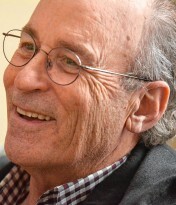What do you think?
Rate this book


333 pages, Paperback
First published January 1, 2003



"Paul has created technical solutions to help the rest of us get to decency, a road map to decency that we can all follow without trying to imitate him... Paul is a model of what should be done. He's not a model for how it has to be done. Let's celebrate him. Let's make sure people are inspired by him. But we can't say anybody should or could be just like him... Because if the poor have to wait for a lot of people like Paul to come along before they get good health care, they are totally fucked."
(p 244)